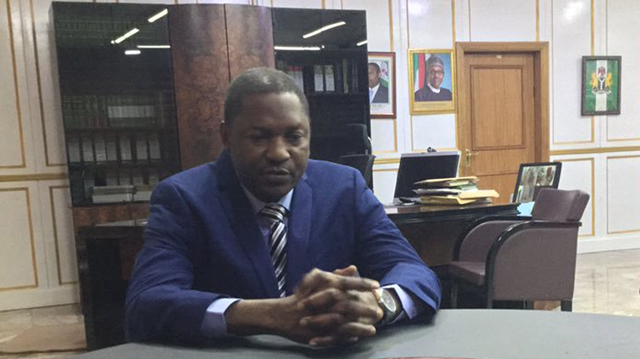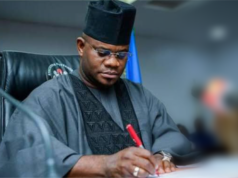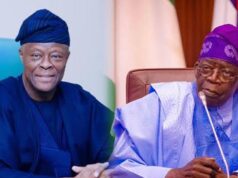
The current squabbles between the Attorney General of the Federation, Abubakar Malami on the one hand; and State Governors and local government councils on the other, over plan to deduct $419 million from the accounts of the states, is a reflection of corruption, lack of responsible leadership and possible underhand dealings in the affairs of the country.
Essentially, the amount is public fund meant to be utilised to improve the standard of living of Nigerians. Somehow, and with tacit connivance of top government officials at both the federal and state levels, the amount was awarded to private companies and individuals for acclaimed services rendered to the states and the councils. In a country swimming under suffocating debts, it is difficult to see the public interest that governed the proceedings leading to conclusion that $419 million should be paid to “consultants”. Rather, the entire engagements stink of fleece of a high order, despite contrasting claims by the feuding parties. Although the court is already in charge of the dispute, any solution to the impasse should be predicated on the legal principle not to allow anyone profit from the proceeds of fraud; and where wrongs are established to have been committed, such should be remedied concomitantly.
The position of the governors is clearly enunciated by the chairman of the Nigerian Governors Forum, Kayode Fayemi to the effect that controversy over the money was traceable to the activities of an illegal faction of the forum many years back. “While some people can obtain money by fraudulent means, it doesn’t mean that another legitimate authority like Governors’ Forum will not reveal that and then insist on the right thing being done,” Fayemi said in a television interview. Such a weighty statement, coming from a governor, ought not to be taken lightly, no matter any previous attempt to perfect an illegal dealing. Fayemi also lamented that a whopping sum of $7million was earmarked as a consultancy fee for a firm for writing a two-page letter for the factional NGF. Surely, if the consultancy fees were not borne from a wholesome perspective, they should be subject to review. The governors’ recourse to the Federal High Court in Abuja which has already given an order stopping the deduction of the money from the accounts of the 36 states to settle the judgment debts is to be appreciated against these facts.
On his part, the Attorney General of the Federation, Malami had explained that there is no going back on the Federal Government’s decision to commence deducting $418 million (Fayemi said the amount involved was $419) from the 36 states’ accounts to settle their indebtedness to consultants and private firms concerning the Paris and London clubs refund. He insisted that the debts had accrued from court judgments awarded the creditors, who were “consultants” and “contractors” to the states and local governments, various sums of money.
Mr. Malami said it was too late in the day for the governors, through the NGF to backtrack on the indebtedness they had earlier committed to pay. Addressing journalists in Abuja, Malami pointed out that the NGF and the ALGON as well as the consultants entered into a consent judgment of $3,188, 079,505,.56 ($3.2 billion) in 2013, which they made commitment to pay and indeed, made part payments between 2016 and 2017.
Curiously, the Association of Local Governments of Nigeria (ALGON) has denied the execution of the projects. This knot also needs to be untied.
The issue certainly once again brings to the fore the incidences of corrupt practices bedeviling the growth and development of the nation. Governance in Nigeria has become but a theatre of the absurd and the theatrics being displayed by most of the nation’s current crop of public office holders would not be funny if staged, as it ridicules the sufferings, needs and aspirations of the ordinary Nigerian for better life.
What apparently should have been about the award, execution and perfection of considerations for a simple contract has been shrouded in mystery, presented as a complex maze, resulting in the debate of whether or not contracts were awarded, authority of persons alleged to have awarded same, its execution or failure thereof, propagation of multiple civil actions and accusations and counter-accusations of kick-back requests by key players; a charade that has defied attempts at resolution by four administrations.
How difficult can it be for government to ascertain whether or not contracts were indeed awarded, persons involved in the award or the extent of their execution? Some of these issues have been litigated upon, culminating in a consent judgment on the basis of which a garnishee order has been secured against the Federal Government and its Central Bank; who were parties to these actions or did they consent to the judgment? Is it a case of the governors seeking to excuse themselves from a contractual obligation simply because they were not included in what is believed to be a free lunch by the previous officers as is being speculated?
Now that the Federal Government has been restrained from making the deductions, it is expected that it would abide by the court’s ruling pending the determination of the substantive suit. One of the issues at stake is preserving the integrity of government to honour contractual obligations. It is equally important however that contracts are devoid of imbedded irregularities or fraudulent acts that are patently against the public interest.
Not too long ago it was the case of Process & Industrial Development (P&ID) over a $10 billion arbitral claim against the Federal Government arising from a contract which the government has since claimed was entered into without adherence to due process. The Attorney General recently informed Nigerians that there were nine other contracts signed under similar circumstances. This trend is worrisome and should be addressed by the government as contracts of this nature are often responsible for the rising cases of judgment debts against the government.
Parties, inclusive of governments and its agencies, are bound by the terms of their contractual agreements, it thus behooves on Nigerians to be circumspect of the persons elected or appointed into public offices as their actions becomes binding on the government and by extension the public. It is reckless for government, having taken the benefit of a contract, to turn around to claim lack of due process; more attention should be given to the documentation process of these transactions.
At a time that the nation is still borrowing to fund its budgetary deficits, with the ever rising rate of inflation, and the lack of basic social amenities across the country, elected office holders should be more conscious of contracts which appear to fleece the nation of its scarce resources, as the best interest of the nation should be of paramount concern at all times. Wastages due to selfish interest without recourse to public policies should not be encouraged. And where such ineptitude manifests, those culpable should be sanctioned appropriately.




















































